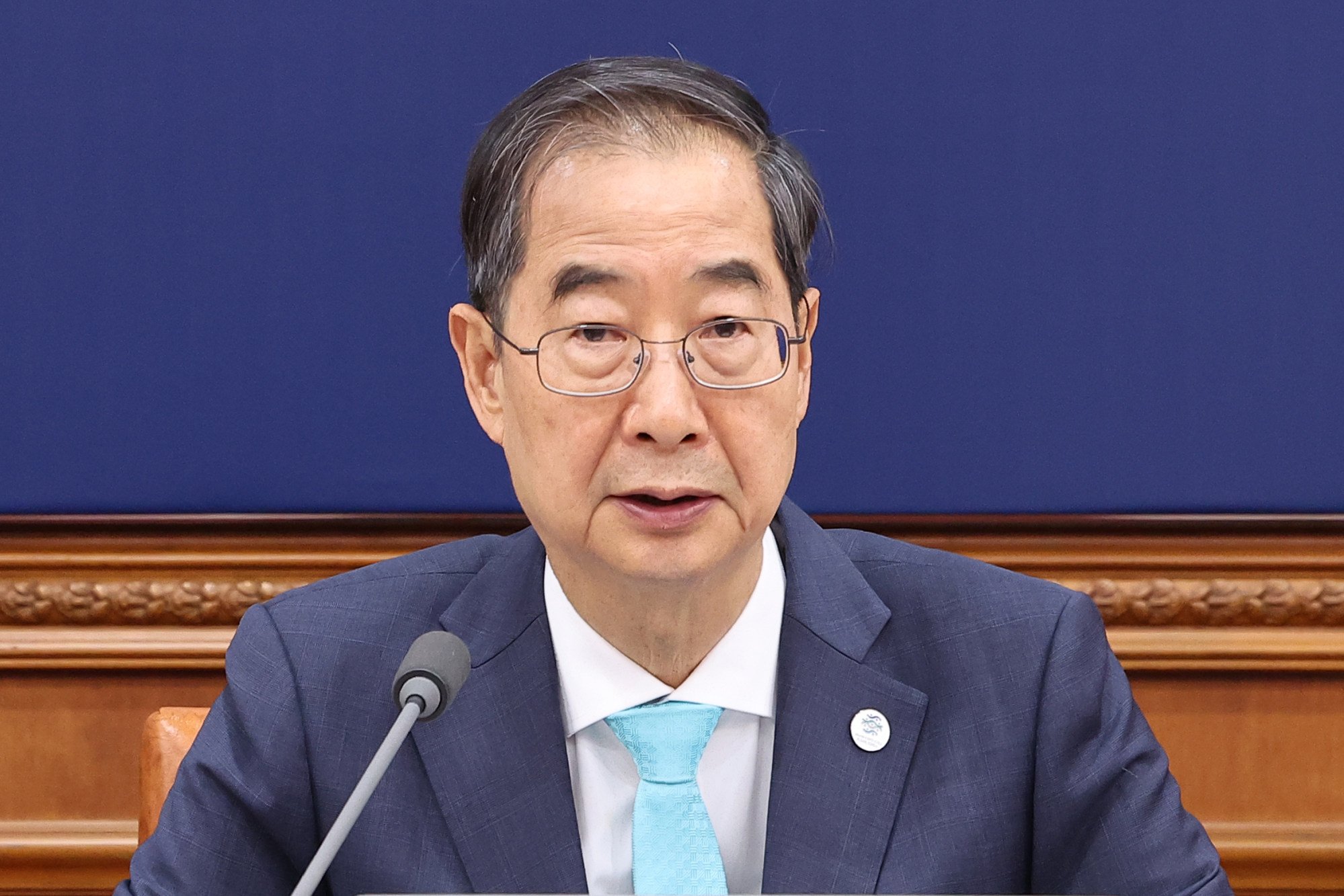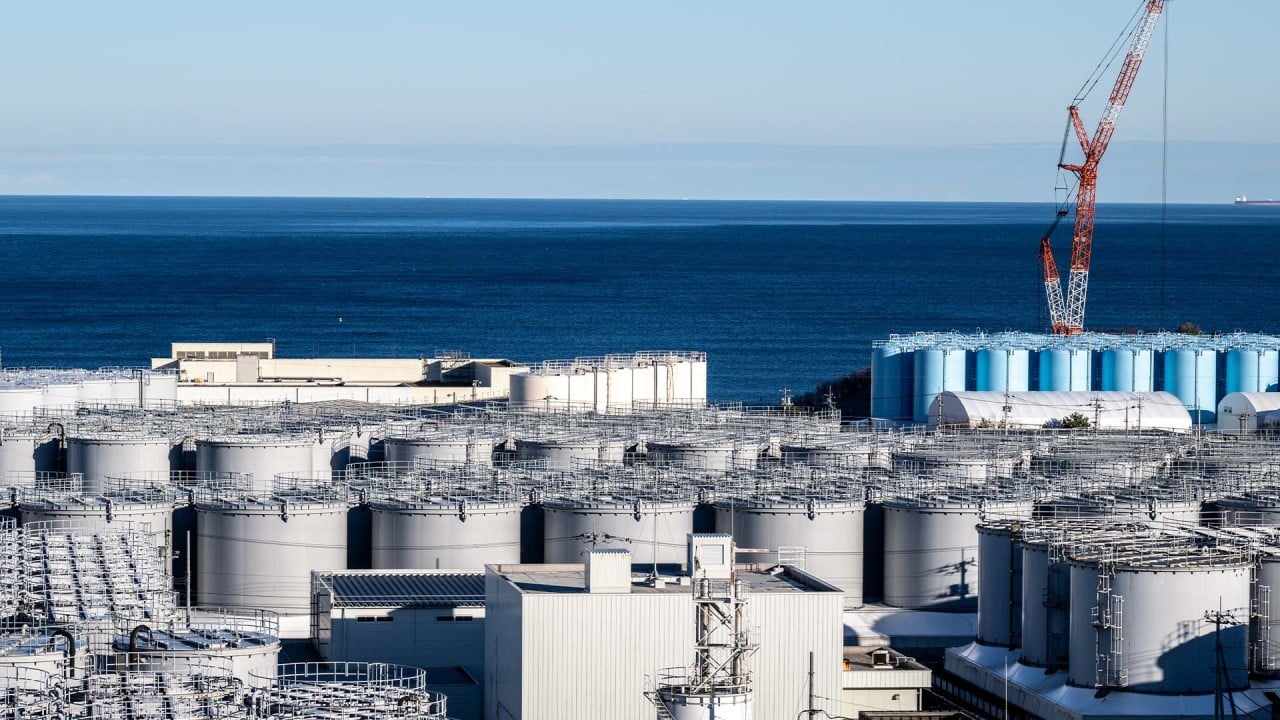
South Korea PM Han Duck-soo offers to drink treated Fukushima water to soothe critics of Japan’s discharge plan
- Han Duck-soo made the remarks in parliament in response to an opposition lawmaker, even as thousands of protesters gathered outside
- Fukushima is one of several issues that critics accuse the South Korean government of trying to gloss over as it seeks closer ties with Japan, US
“If the waste water is treated in line with the World Health Organization’s potable water standards, I would be willing to drink it,” Han said in response to opposition lawmaker Kim Sung-joo.
Yoon’s ruling People Power Party lawmakers have accused the opposition of fearmongering and exaggerating the health risks from the release, and urged punishments for those spreading rumours.

“Judicial authorities would take proper action against such activities if fishermen and others working in the fisheries industry suffer seriously from rumour mongering,” Han said.
While Han traded barbs with opposition lawmakers, some 2,000 people, mostly fishermen, gathered outside parliament to protest and demand other solutions to the discharge of contaminated waste water, such as long-term storage on land.
They also urged the government to file a lawsuit against Japan with the International Tribunal for the Law of the Sea to stop the discharge.
“The government is standing idly by as Japan is wrapping up preparations to discharge contaminated water into the sea,” said Jun O-chong, head of the nation’s fishermen’s association.
South Korean lawmaker challenges Japan officials to drink Fukushima water
More than 85 per cent of South Koreans oppose Japan’s plan to release the waste water, according to a survey of 1,000 people last month by local pollster Research View. Seven in 10 respondents said they would consume less seafood if the waste water release went ahead.
“The government is apparently taking up the cudgels for Japan, while seeking to silence fishermen objecting to the planned discharge. But as a Korean saying goes, you can’t hide the sky with your palms. Truth will prevail in the end,” said Lee Ki-sam, a spokesman for a federation of farmers’ associations in South Korea.
The federation plans to send a seven-member team to Japan in a show of solidarity with Japanese fishermen who are planning a June 20 protest in Fukushima, he said.
“The government wants to put aside these issues that it sees as hindrances to a tighter alliance with Japan,” said Choi Kyoung-sook, who works with NGOs campaigning against the waste water discharge.
One of Yoon’s key presidential campaign promises was to boost the country’s nuclear power generation by building new plants and authorising the extension of ageing reactors.
“The government is worried that civil agitations concerning the Fukushima disaster would take the shine off Yoon’s pro-nuclear power policy ahead of the general election next spring,” Choi added.

Ahead of the planned release, some Koreans are stockpiling salt and seafood even as authorities promise to step up monitoring of radioactive substances in salt and other sea products, and to maintain a ban on seafood from Fukushima.
“I worry the release of waste water could not only pollute [the ocean] and lead to health problems but also raise salt and seafood prices,” said 67-year-old Park Young-sil, who was shopping at a market in Seoul.
Additional reporting by Reuters


